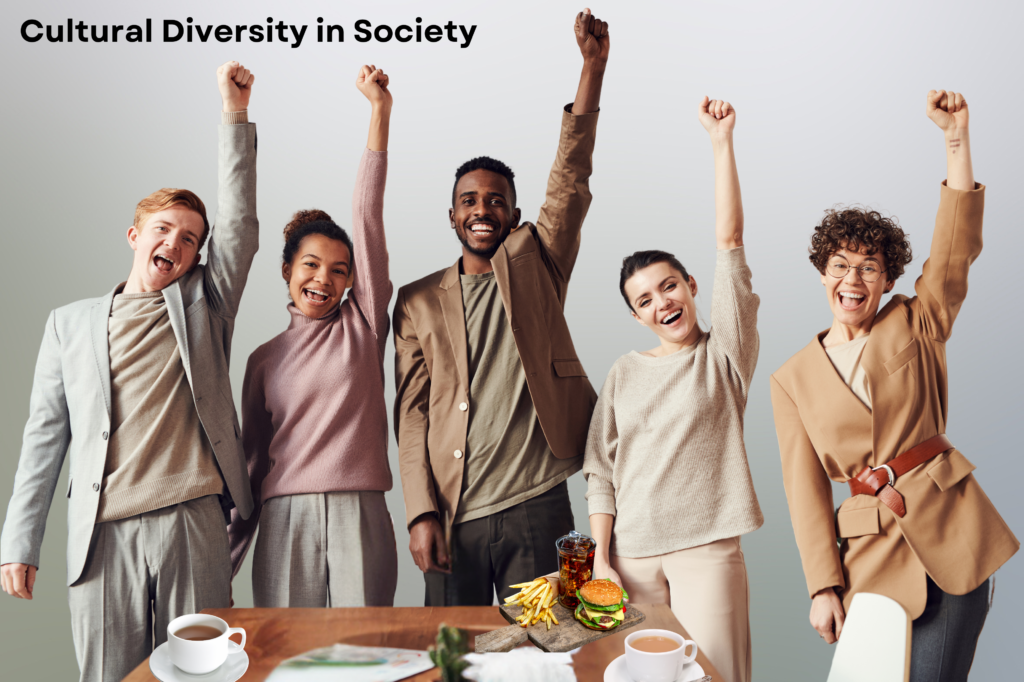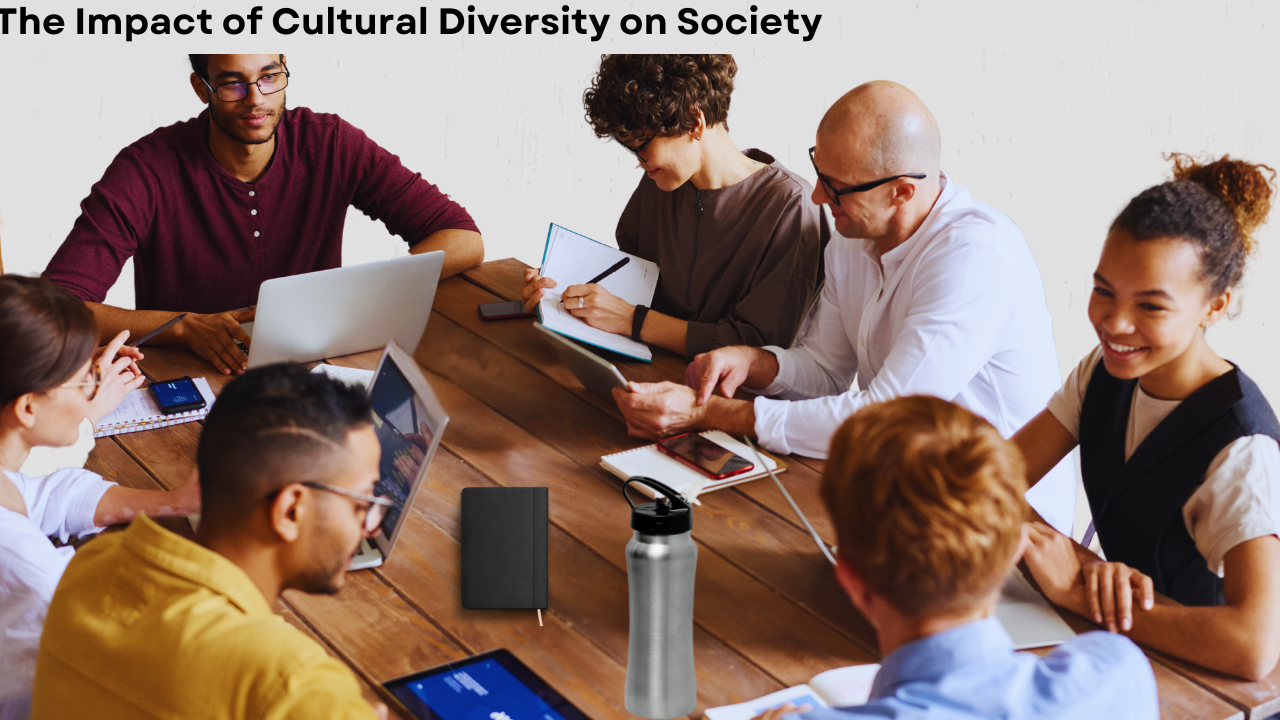Sociology looks at society, how people act, and how they interact with each other. It helps us figure out how people and groups connect. Studying different cultures is one of the most essential parts of sociology. The world has many different cultures, languages, practices, and customs. It is called cultural diversity. This article will discuss the link between sociology and cultural diversity.

Understanding Culture
Culture is one of the most essential ideas in sociology. This word refers to the views, values, habits, and actions everyone shares. Culture affects how people think, behave, and talk to each other. Every group of people has their own culture, which shapes how they live. Culture is something that sociologists study to learn more about the social systems that shape how people act.
Cultural Diversity in Society
Many different cultures are living together in the world. It is called cultural variety. These cultures can be based on faith, race, language, or country of origin. Cultures are mixed when people from different backgrounds live together and associate with each other. This variety improves cultures by bringing fresh thoughts, ideas, and experiences. It also helps people from various groups get along and be tolerant of each other.
The Importance of Studying Cultural Diversity
Sociologists need to study cultural diversity because it helps them determine how different cultures affect people’s actions. It also helps them think about the good and bad things that can happen in multicultural communities. Cultural diversity allows people to see other cultures’ worth and avoid bias and discrimination. It also allows people from different groups to get along and value each other.
Cultural Differences and Social Interaction
Where people come from can change how they bond with each other. For instance, how people talk, gesture, and act may differ in each country. These differences can be annoying or make things more challenging, but they can also teach you new things and help you grow. Sociologists study how these cultural differences affect how people and groups hook up and get to know each other.
The Role of Language in Cultural Diversity
Language is an integral part of society and a big part of how different cultures are. Languages show how people think and understand the world in various ways. People from other cultures may speak multiple languages, making conversation easier or harder. Sociologists study how differences in language affect how people connect, how they learn, and how they can get resources.
Religion and Cultural Diversity
Religion is another important part of national diversity. Each faith has its own set of beliefs, customs, and ways of doing things. People of different religions live together in a diverse culture, which can lead to both good and bad interactions. Sociologists study how faith diversity affects how well different groups get along, fight, and work together.
The Impact of Globalization on Cultural Diversity
By bringing people from different countries closer together, globalization has made culture more diverse. It has made sharing goods, thoughts, and technology more accessible for people in other countries. However, as global cultures become more common, traditional traditions may need to be recovered. Sociologists look into how globalization changes cultures and how people adjust.
Immigration and Cultural Diversity
One of the main things that leads to ethnic diversity is immigration. People take their languages, customs, and ways of life with them when they move from one country to another. It brings different cultures together in the host country. Sociologists study how refugees fit in with new communities and how their presence changes the mix of cultures in the places they live.
Challenges of Cultural Diversity
Cultural variety is good in many ways, but it can also be challenging in some ways. Dealing with bias, assumptions, and discrimination is one of the hardest things to do. People may not like people who are different from them, which can cause problems in society. Sociologists try to figure out these problems and push for answers that make societies more accepting and open to everyone.
The Role of Education in Promoting Cultural Diversity
Promoting ethnic diversity is a big part of education. Different cultures can be taught in schools, and students can be trained to accept differences. Through schooling, people can learn to value the richness of various beliefs and traditions. Sociologists study how to make schools better so that they teach tolerance and knowledge of other cultures.
Cultural Diversity in the Workplace
As the world gets more linked, workplaces are getting more different from around the world. People from other places and walks of life can develop new ideas and fun ways to resolve issues when they work together. However, cultural differences can also cause problems at work, such as confusion or fights. Sociologists study how businesses can deal with people from different cultures and ensure everyone feels welcome and valued at work.
Media and Different Cultures
The media has a significant impact on how people think about national diversity. TV, movies, the news, and social media can change people’s views on other countries. Media portrayals of different cultures that are positive can help people understand and accept others, while negative stereotypes can make bias stronger. Sociologists study how the media affects ethnic diversity and work to ensure that different groups are shown more accurately and respectfully.
What the government can do to support cultural diversity
Governments are crucial when it comes to supporting and spreading cultural diversity. They can make rules that protect minority groups, promote equal rights, and support diversity. Sociologists study how well government policies support cultural variety and how these policies affect the coming together of people from different backgrounds.
Why accepting cultural differences is good
Accepting different cultures is good for society in many ways. By bringing together different points of view, it promotes creativity and new ideas. Also, it helps people understand and care about other people. Societies with many different cultures are more active and open to change. Sociologists discuss these perks to get people to accept differences and work for inclusion.
Promoting Social Justice in Culturally Diverse Societies
Social justice means making sure that everyone, no matter where they come from, has the same rights and chances. Promoting social justice is essential for keeping peace in countries with many cultures. Sociologists study how to fix unfair situations and ensure that groups already struggling are treated fairly. They fight for rules and actions that make everyone feel welcome and lessen discrimination.
Differences in culture and identity
Cultural variety is an integral part of how people and groups see themselves. Often, people use their language, faith, and traditions to describe who they are. People in diverse cultures may have multiple cultural identities, making their lives more enjoyable. Sociologists study how people deal with their identities in mixed settings and how being from a different culture affects their sense of who they are.
What’s Next for Cultural Diversity
Cultural variety will keep growing as the world gets smaller and smaller. Researchers in the field of sociology think that people from even more different countries will live and work together in the future. This more comprehensive range of people brings both possibilities and problems. Sociologists will keep looking into how societies can make the world a more welcoming, understanding, and cooperative place for people of all cultures.
Conclusion
Different cultures are essential to sociology because they help us understand how complex society is. It improves our lives by teaching us about new customs, ideas, and ways of thinking. Different cultures can be complex at times, but they can also be beneficial in many ways, such as fostering creativity, innovation, and social unity. By studying different cultures, sociologists help make the world a better place for everyone. They show that other people can get along and live and work together.
